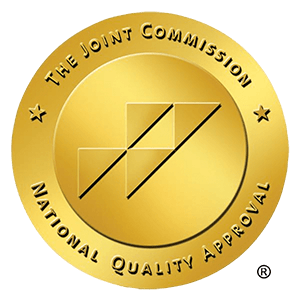In a world where social isolation and loneliness have become increasingly prevalent, the power of connection cannot be overstated. In this blog post, we delve into the transformative potential of group therapy in combating the pervasive feelings of loneliness that afflict so many individuals today. Titled “From Isolation to Inclusion: How Group Therapy Can Combat Loneliness,” this exploration navigates the profound impact of group dynamics, shared experiences, and supportive environments on mental well-being. Loneliness is more than just a fleeting emotion—it’s a complex phenomenon with profound implications for health and happiness. Yet, amidst the challenges of modern life, finding authentic connections can seem daunting. Here, we uncover how group therapy offers a unique avenue for individuals to break free from the shackles of isolation, fostering a sense of belonging, understanding, and community. Join us on this journey as we illuminate the path from solitude to solidarity, highlighting the invaluable role of group therapy in reshaping lives and cultivating meaningful connections.
The Power of Connection: Exploring Group Therapy
In a world where technology connects us more than ever before, it’s paradoxical that many people feel increasingly isolated and disconnected. Loneliness, anxiety, and depression are prevalent, yet there’s a beacon of hope amidst the struggle: group therapy. This form of therapy emphasizes the power of human connection in healing. In this exploration of “The Power of Connection: Exploring Group Therapy,” we’ll delve into how group therapy fosters meaningful connections, supports personal growth, and combats the pervasive sense of isolation in today’s society.
Creating a Safe Space for Vulnerability
Group therapy provides a safe and supportive environment where individuals can share their thoughts, feelings, and experiences without fear of judgment. The group setting encourages openness and vulnerability, allowing participants to express themselves authentically. This atmosphere of trust enables deeper connections to form among group members, as they recognize and empathize with each other’s struggles.
Shared Understanding and Validation
One of the most powerful aspects of group therapy is the sense of validation that comes from realizing you’re not alone in your experiences. As participants share their stories and listen to others, they often discover commonalities in their struggles. This shared understanding fosters a sense of belonging and validation, which can be incredibly healing. Knowing that others have walked a similar path and empathizing with your journey can provide a profound sense of relief and comfort.
Learning from Diverse Perspectives
Group therapy brings together individuals from diverse backgrounds, cultures, and life experiences. This diversity enriches the therapeutic process by offering a range of perspectives and insights. Participants learn from each other’s unique viewpoints, gaining new perspectives on their own challenges and coping strategies. This exposure to diversity promotes empathy, understanding, and personal growth within the group.
Support and Encouragement
In group therapy, participants become each other’s allies in the journey toward healing. They offer support, encouragement, and validation to one another, creating a network of mutual aid. This sense of camaraderie and solidarity strengthens individuals’ resilience and motivation to overcome their challenges. Knowing that others are rooting for your success can be incredibly empowering and uplifting.
Experiential Learning and Skill Building
Group therapy provides opportunities for experiential learning and skill-building in a real-world context. Through group discussions, role-playing exercises, and interactive activities, participants practice communication skills, conflict resolution, and emotional regulation techniques. These practical experiences translate into real-life situations, empowering individuals to navigate their relationships and challenges more effectively.
Beyond the Stigma: Normalizing Group Therapy for Mental Well-Being
Despite its proven effectiveness, group therapy often faces stigma and misconceptions. However, breaking down these barriers is crucial for promoting mental well-being. In this exploration of “Beyond the Stigma: Normalizing Group Therapy for Mental Well-Being,” we’ll highlight key points to challenge stereotypes and encourage wider acceptance of group therapy as a valuable tool for mental health support.
- Effective Treatment Option: Group therapy has been extensively researched and proven to be as effective as individual therapy for many mental health conditions, including depression, anxiety, and PTSD.
- Cost-Effective Solution: Group therapy is often more affordable than individual therapy, making mental health care more accessible to a broader range of individuals.
- Social Support Network: Group therapy provides a built-in support network of peers who understand and empathize with each other’s experiences, fostering a sense of community and belonging.
- Diverse Perspectives: Group therapy brings together individuals from diverse backgrounds, offering a range of perspectives and insights that can enrich the therapeutic process.
By normalizing group therapy and challenging the stigma surrounding it, we can help more individuals access the support they need for their mental well-being.
Strength in Numbers: The Collective Healing of Group Therapy
Loneliness, depression, anxiety – these are all too common in today’s fast-paced and often disconnected world. Yet, amidst the struggles, there’s a beacon of hope: group therapy. While traditional one-on-one therapy has its merits, group therapy offers a unique approach to healing. It harnesses the collective wisdom, support, and strength of individuals facing similar challenges. In this exploration of “Strength in Numbers: The Collective Healing of Group Therapy,” we’ll delve into the transformative power of group therapy and how it fosters healing through shared experiences.
The Power of Collective Healing
Group therapy operates on the principle that shared experiences can be immensely therapeutic. Imagine sitting in a room with others who understand your pain, your struggles, and your triumphs. The sense of validation and understanding is unparalleled. Through group discussions, participants not only gain insight into their own experiences but also offer valuable perspectives and support to others. This collective sharing creates a profound sense of connection and solidarity, fostering an environment ripe for healing.
Breaking Down Walls of Isolation
One of the most insidious effects of mental health struggles is the feeling of isolation – the belief that no one truly understands what you’re going through. Group therapy dismantles these walls of isolation brick by brick. It provides a safe space where individuals can express their thoughts and emotions without fear of judgment. As participants open up and share their stories, they realize they’re not alone in their struggles. This realization is incredibly empowering and serves as a catalyst for healing.
Mutual Support and Empathy
In group therapy, participants become each other’s pillars of strength. Through active listening and genuine empathy, they offer support and encouragement to one another. This mutual support creates a sense of camaraderie and belonging that is essential for healing. Knowing that others are rooting for your success can be incredibly motivating on the journey toward mental well-being.
Learning from Others
Group therapy is like a classroom where everyone is both a student and a teacher. Participants learn not only from the therapist leading the sessions but also from each other. Hearing different perspectives and coping strategies can broaden one’s understanding of their own struggles and provide valuable insights into alternative approaches to healing. This collective learning fosters personal growth and resilience, equipping individuals with the tools they need to navigate life’s challenges more effectively.
Celebrating Success Together
In group therapy, victories – no matter how small – are celebrated collectively. Whether it’s overcoming a fear, achieving a personal milestone, or experiencing a breakthrough in therapy, participants cheer each other on. These moments of celebration reinforce the idea that progress is possible and that everyone is capable of growth and change. Moreover, they create a sense of community and shared achievement that further strengthens the bonds formed within the group.
Conclusion
Core Recovery, we recognize that the journey from isolation to inclusion is not merely about alleviating loneliness, but also about fostering a sense of belonging and connection. Through our group therapy sessions, we strive to create a supportive environment where individuals can share their experiences, find common ground, and build meaningful relationships. By acknowledging the universal human need for social connection and offering a space for collective healing, we empower our clients to navigate their loneliness and embark on a path towards holistic recovery and fulfillment.





 In CA By O360®
In CA By O360®